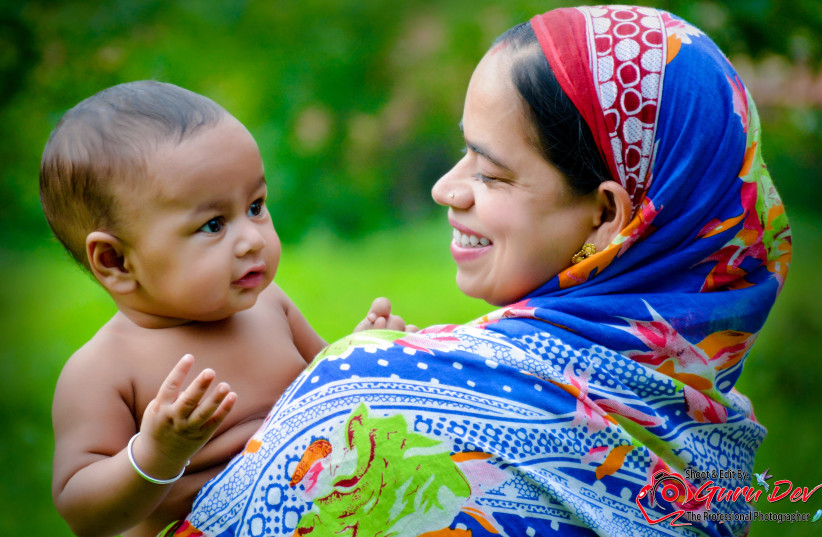What do babies hear and understand? How can they communicate with parents without using words? A speech therapist explains.
From the moment of birth, and even before it, your baby communicates with you. Even without speaking at all and before the first words have appeared, they acquire language and find their own ways to convey messages to you. This is the pre-verbal stage, which you can notice even when babies are in the womb, like when they kick in response to a loud noise.
Speech therapist Meital Mansheri Naftali explained the milestones babies reach in the pre-verbal stage.
Communication
Babies use non-verbal means to convey intentions and desires. From the age of six months, you’ll notice a significant jump in these abilities. Gestures which help babies express different intentions like request and sharing begin to appear.

Language
In the beginning, babies hear language as large units, for example: "theroundball". Over time, they learn to separate the words and figure out where one word begins and ends. Babies "calculate" possibilities and recognize the patterns in the language. At the same time, they learn the words and their meaning from the context.
Speech
Babies experience different voice patterns. First it will be an initial experience in voices, like a shriek until a few letters together are mumbled and from there a sequence of syllables. From here, babies begin to learn words.
How should you communicate with your baby in the pre-verbal stage?
Talk to babies from the first moment, telling them what they see, feel and hear. Describe the world around them. Studies show that infants exposed to lots of language learning (being spoken and read to) up to one and a half years of age had greater vocabulary and better language processing abilities at two years of age than babies who had less exposure to language.
In addition, play ping pong with the baby. Not one with a ball, but one with words. How? Make your voices heard and allow them to respond to you. This ping pong will encourage imitation ability, pave the way for learning first words and of course allow for the development of important communication skills like face-to-face communication, body movements and joint play.
This article was written in partnership with the JAMA parenting app.
